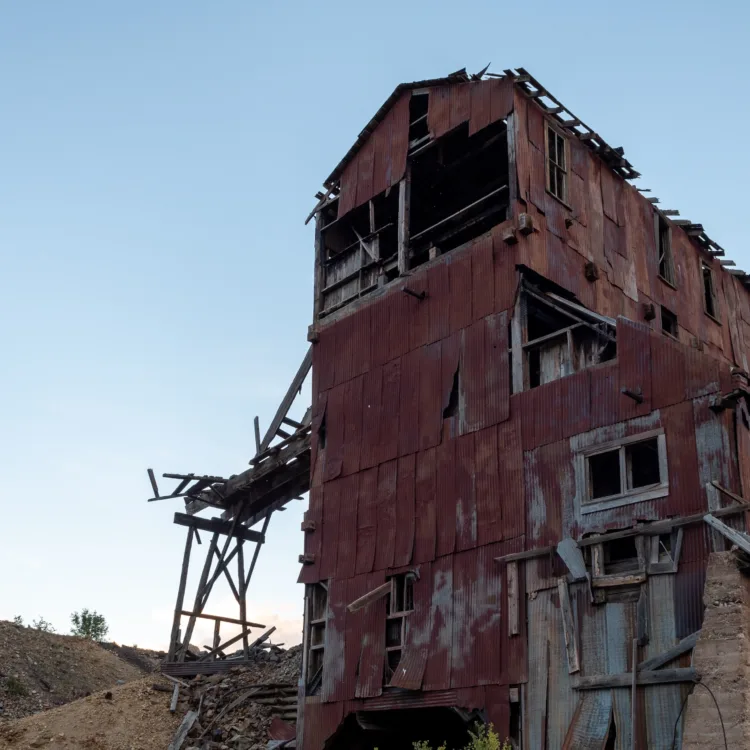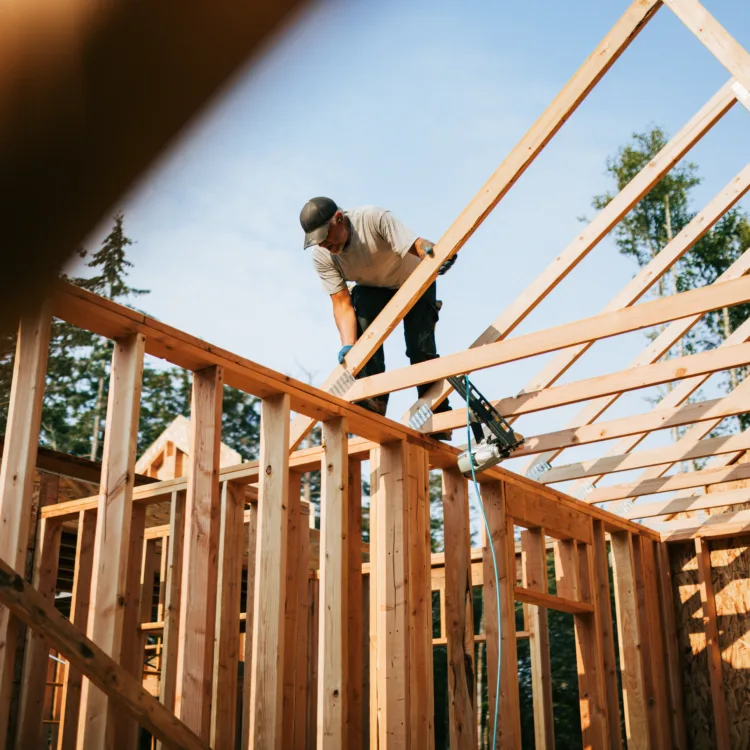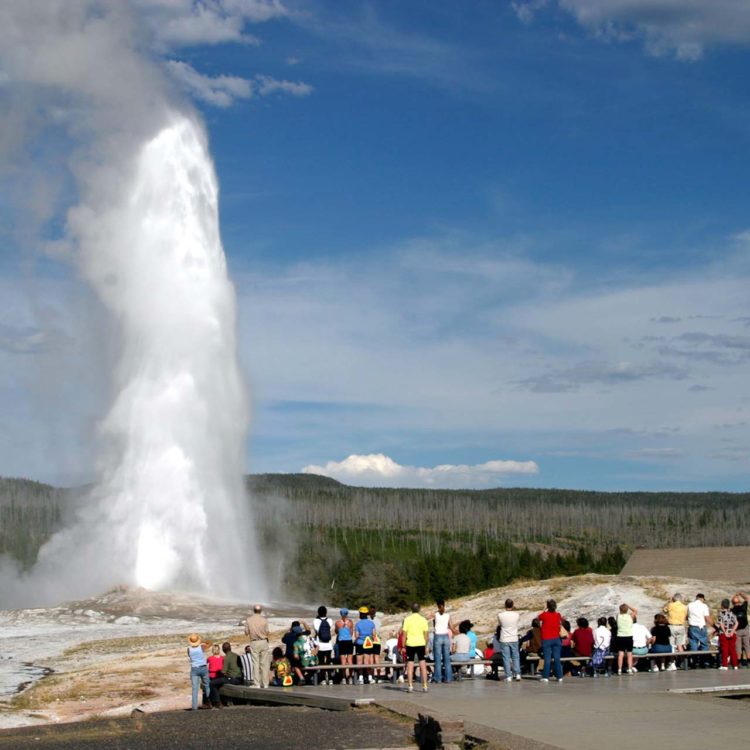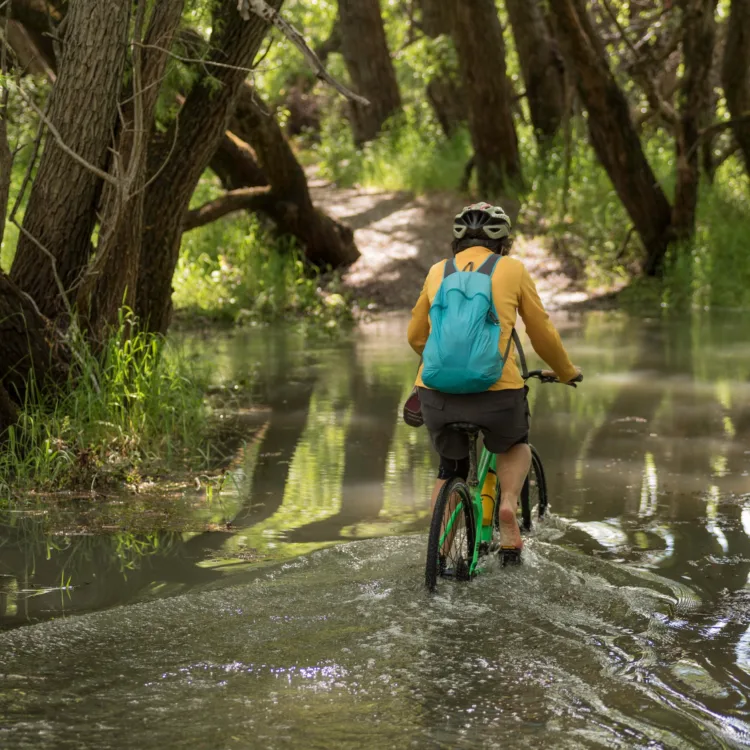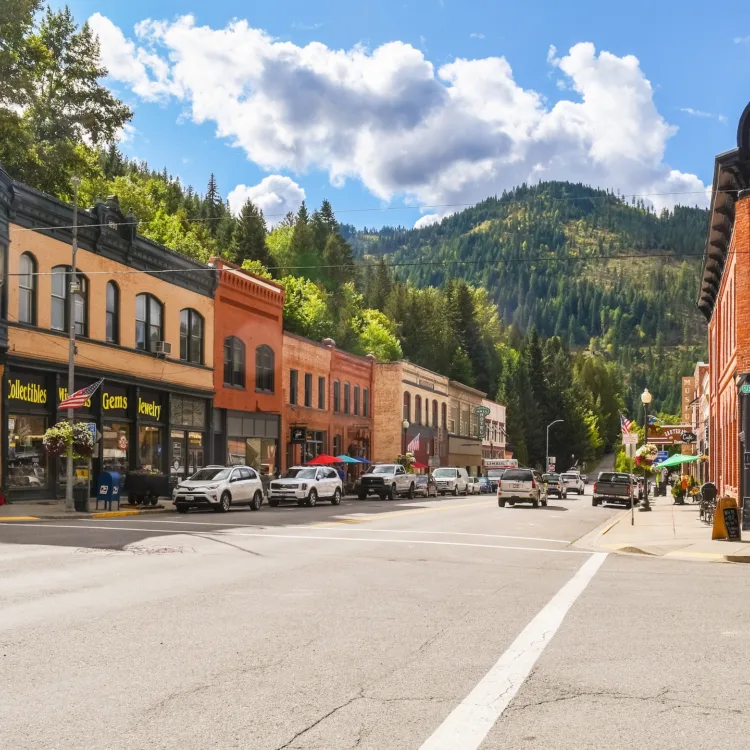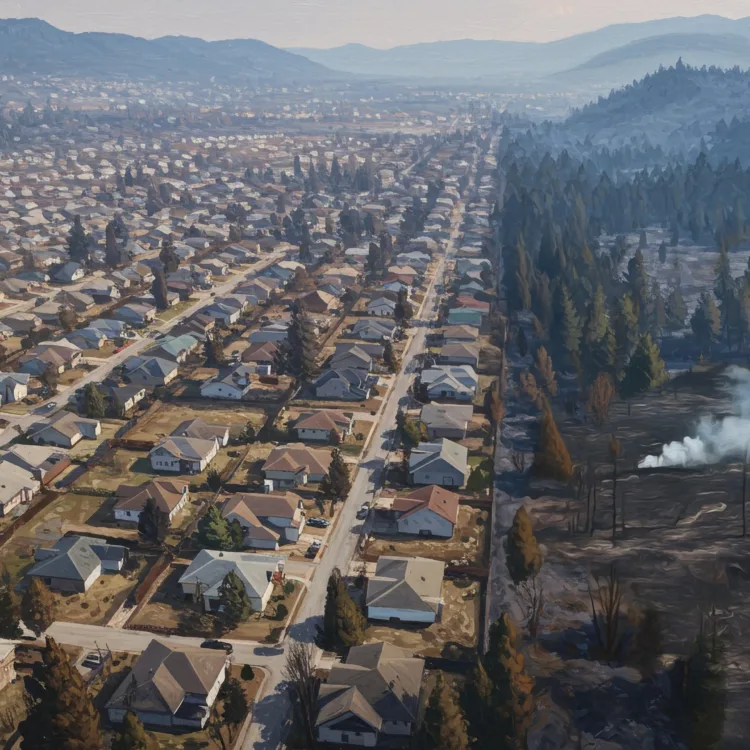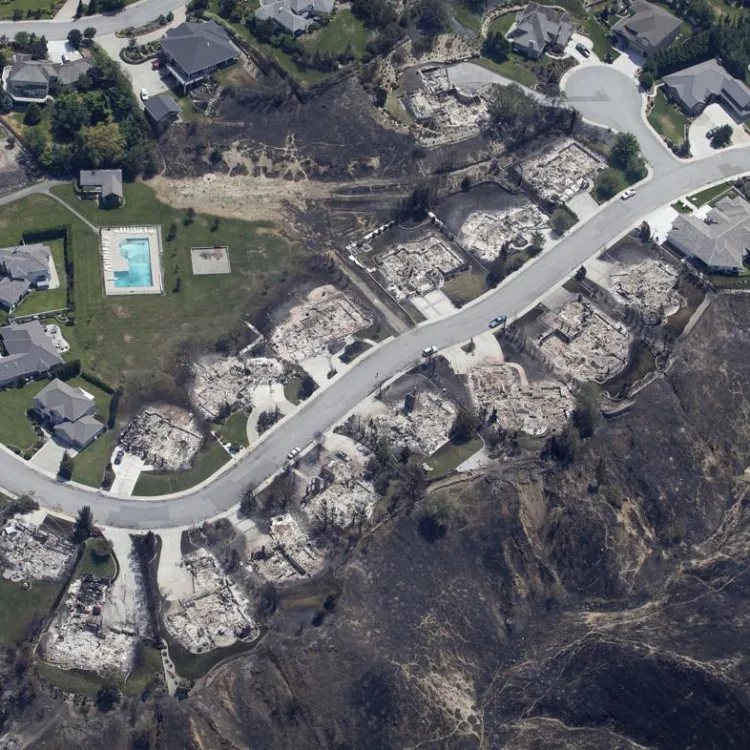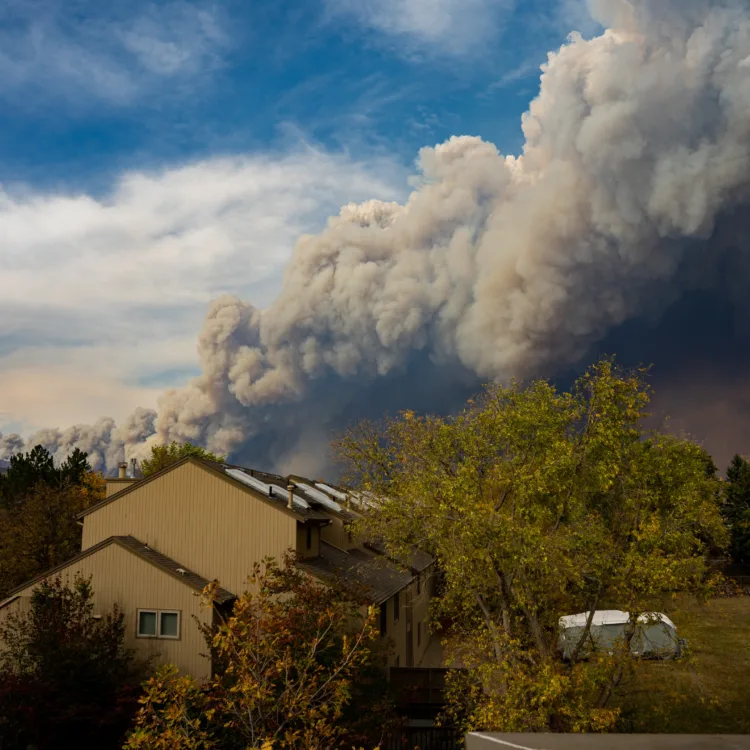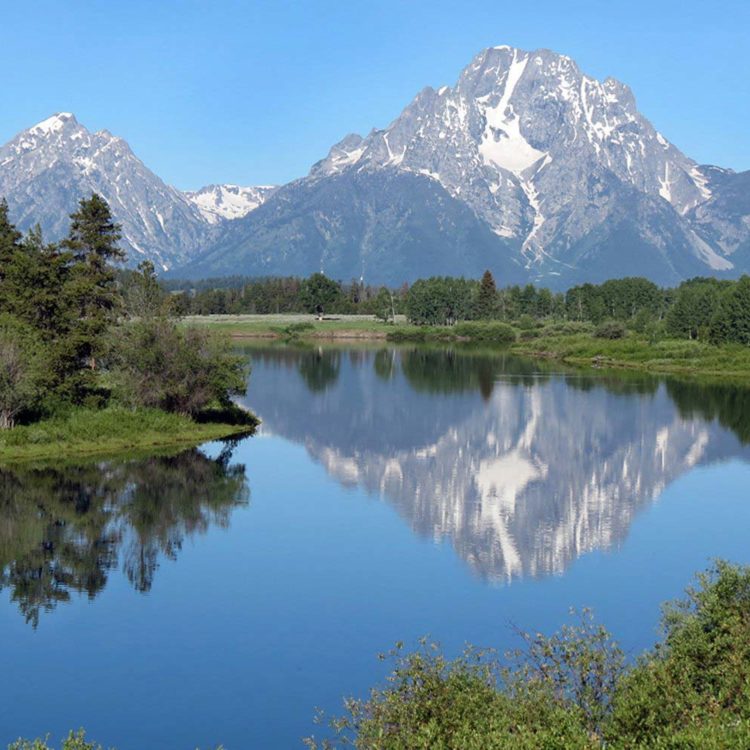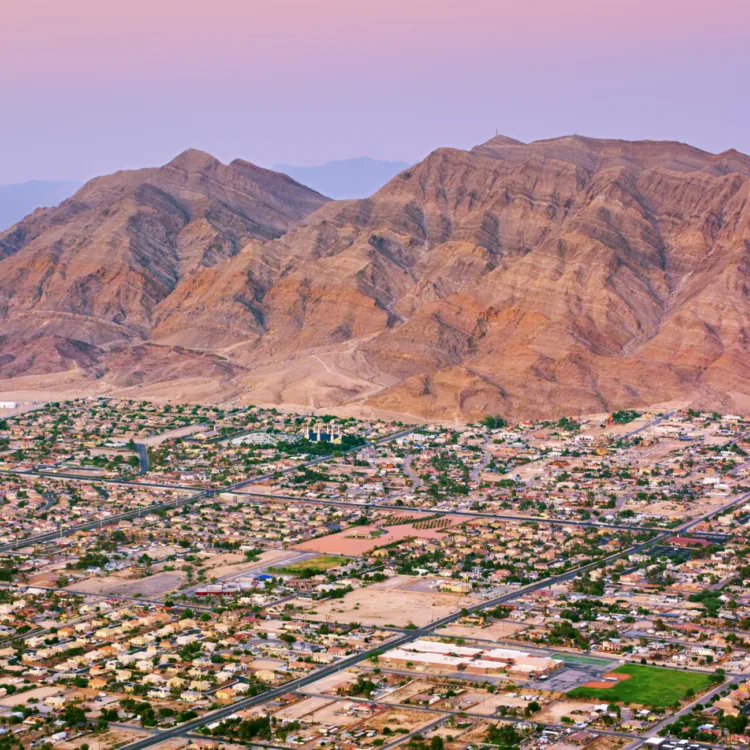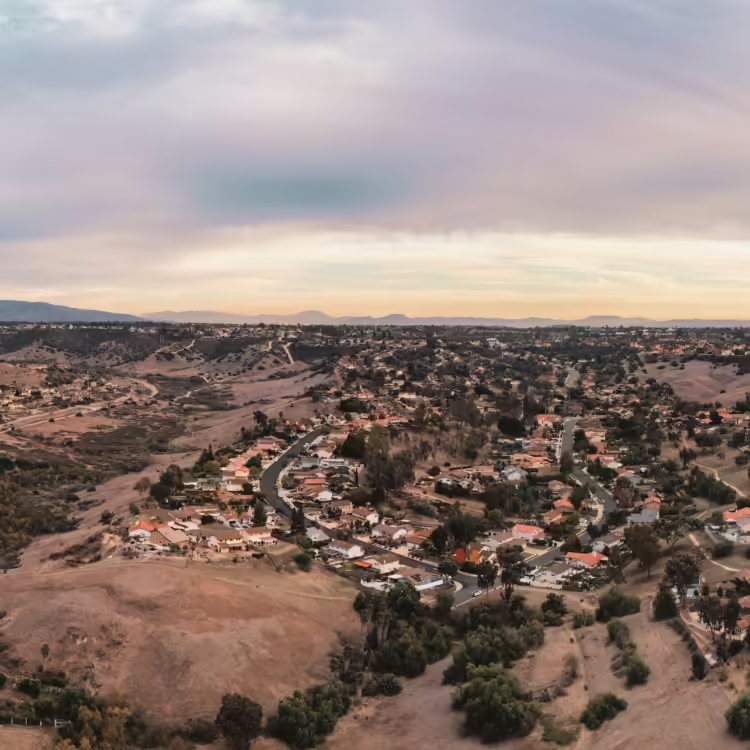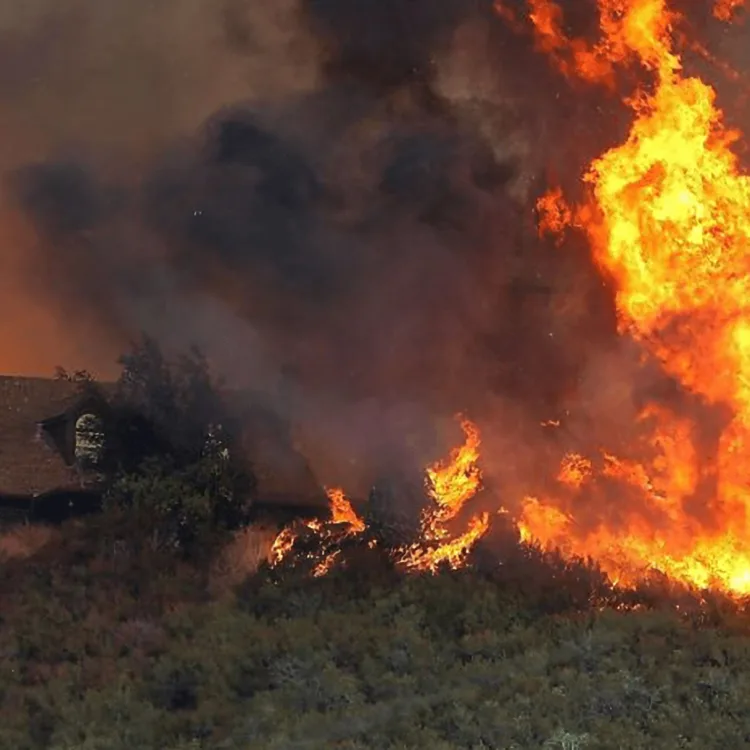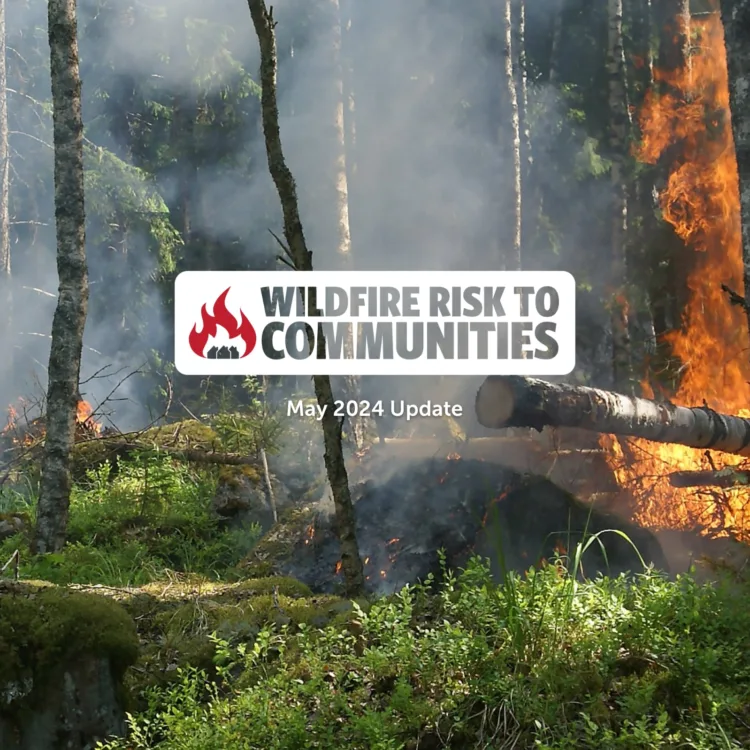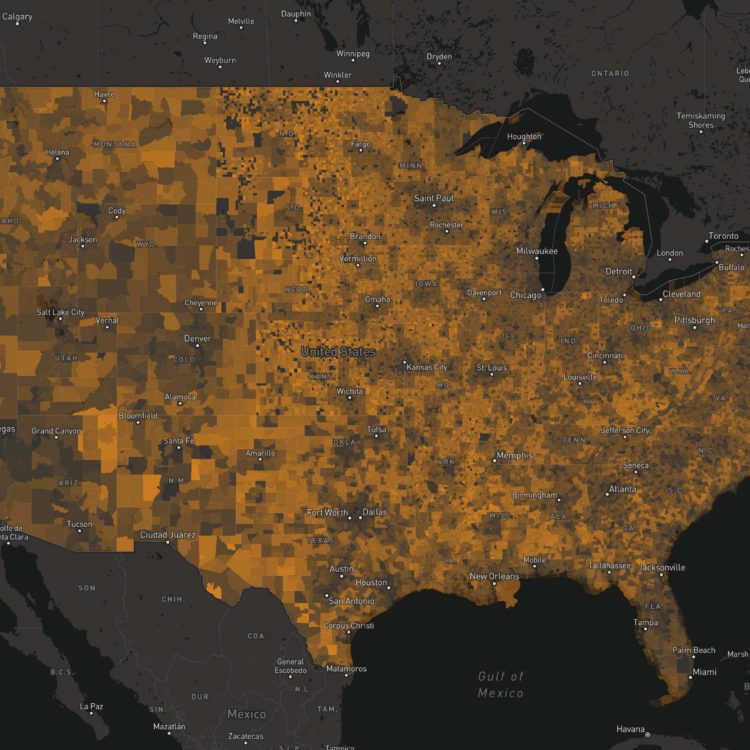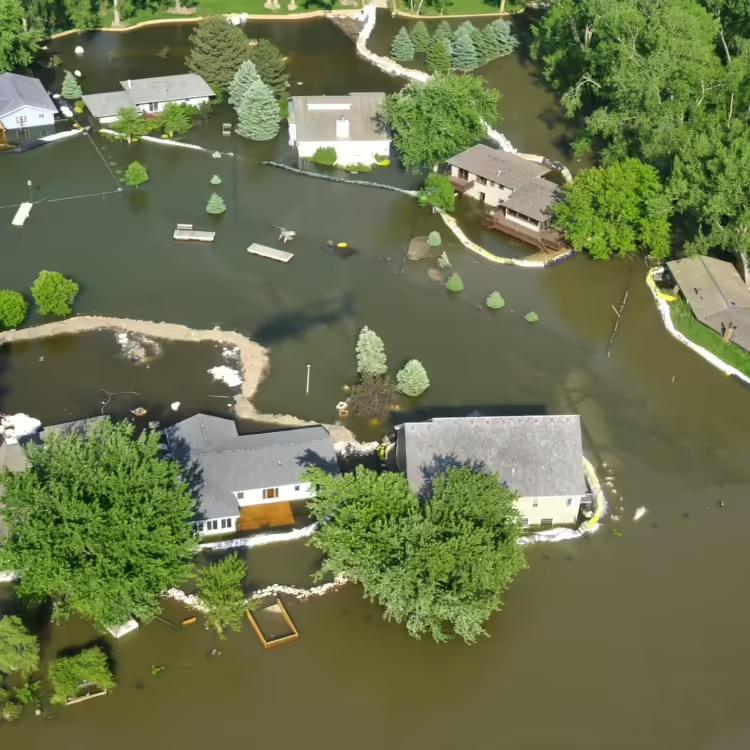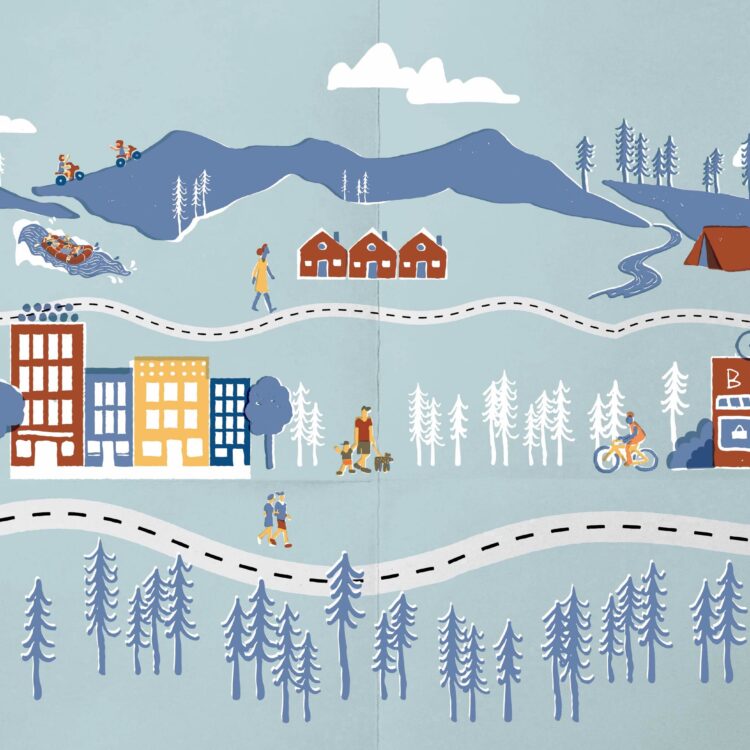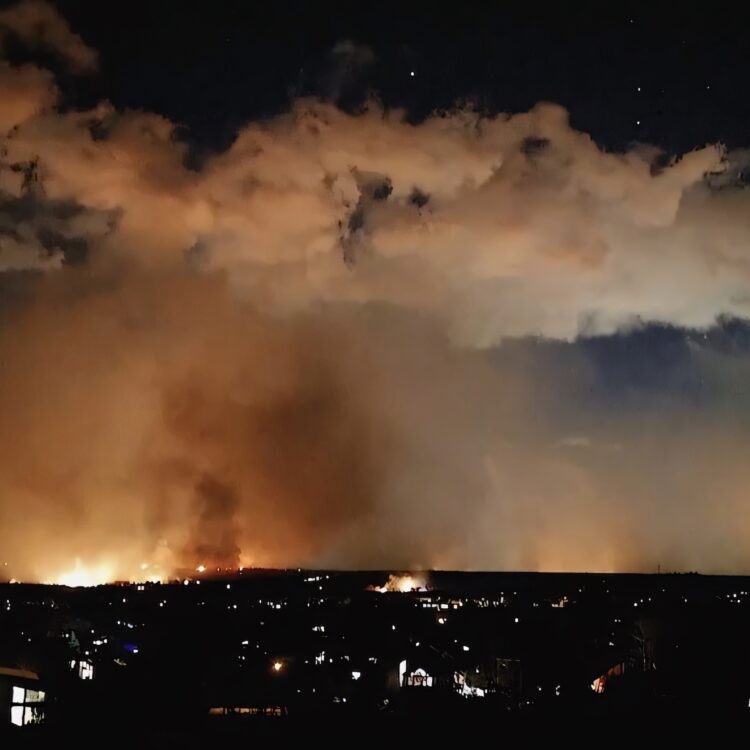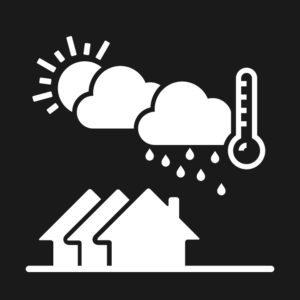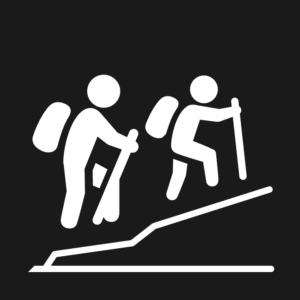
Economic performance of communities near national monuments
National monument designation does not disrupt local economies, according to the latest data on jobs, income, and GDP. Most trends continue on the same trajectory after designation, and income growth tends to improve modestly over time.
“Missouri River Breaks” by Brent Powell, illustration inspired from photo by Bob Wick, BLM

Latest research
States must modernize stream crossing standards to protect communities from flooding
More than half of the culverts protecting roads from flooding in the United States do not meet modern design standards, endangering communities and local economies. New standards and replacement programs must be adopted.
Wildfire and insurance options for homeowner coverage
In the face of increasing wildfire disasters several strategies could play a role in reducing damages and stabilizing homeowners insurance markets.
Reclaiming abandoned mines can protect against harmful and costly flood disasters
More than 68,000 abandoned or inactive mines in areas with high flood risk endanger people and places across the U.S.
Construction costs for wildfire-resistant homes
A new analysis shows that building wildfire-resistant homes adds less than 3% to construction costs.
Economic Impact of National Parks
Millions of national park visitors generate economic opportunities for gateway communities, spending money that creates jobs and income. See the trends for every national park service unit.
Building disaster preparedness in the outdoor recreation economy
As floods and wildfires grow more damaging, recreation leaders and emergency managers must team up to protect visitors, economies, and the landscapes we love.
Public land ownership in the United States
Public lands influence the economy, demographics, and fiscal policies of communities. Explore maps and county-level data for the 828 million acres of federal, state, and municipal land in the U.S.
Protecting our Past: Wildfire Strategies for Historic Buildings
The loss of the Grand Canyon Lodge to wildfire underscores the urgent need to align historic preservation standards with evidence-based wildfire risk reduction practices.
Future-proofing the outdoor recreation economy
Many outdoor recreation communities face outsized wildfire and flood risks. They must prioritize updating infrastructure, community planning, and emergency response.
Building wildfire-resistant homes after disasters will save billions
Upfront investments in rebuilding to wildfire-resistant standards can save billions in future avoided economic losses.
The next generation of wildfire risk models must account for the built environment
New research highlights opportunities to improve wildfire risk models that inform planning, building codes, and risk management.
How rural communities can ensure development projects deliver local benefits
Seventy percent of rural communities with high economic output are losing population, but rural leaders can use Community Benefit Agreements to ensure development leads to lasting local value.
The path to wildfire-resistant building codes in Colorado offers lessons for other states
Colorado’s code design considered stakeholder input, including interviews and a survey conducted by Headwaters Economics and the University of Colorado Denver.
National public lands are vital to local economies
The growing connection between livelihoods and public lands calls for more investments in public access, preserving ecosystems, and minimizing privatization.
Housing on public lands will be limited by wildfire risk and development challenges
Federal public lands may offer opportunities to improve housing affordability in a limited number of states, but will face significant barriers from wildfire risk, water availability, and conflicts with existing resource or recreation uses.
FieldNotes:
A look into the inner-workings of Headwaters Economics.

Our CPAW team has been busy working across Colorado, Hawaii and other states refining their approaches to wildfire, but this month they were closer to home. Ryan Handy briefed the Montana Legislature’s Environmental Quality Council on wildfire risks. And just days later, Kimi Barrett shared insights on wildfire and insurance challenges with the Economic Affairs Committee. Smarter wildfire policy is taking shape.

Closing out 2025
Everyone on the Headwaters Economics team was able to come together yesterday for our end-of-year celebration. Custom fanny packs (some of us called them “hip packs”) were gifted to all, but the real perk was reviewing all the research, briefings and outcomes for communities we were able to deliver this year. A great team = great results. We are ready to keep it up in 2026!
Easily find data to compare rural and metro areas
Curious how your state’s rural and metropolitan areas compare? The Economic Profile System makes it easy. Search for your state, click “add more places” on the map, then choose “metro/rural portion.” You’ll get the latest data for both metropolitan and nonmetropolitan parts of your state. Visit EPS.
Megan is just back from Bend, Oregon where she presented at the High Desert Museum on how outdoor recreation opportunities can bring great benefits to communities, but can also pose great challenges for growth and affordability. It’s a paradox we call the Amenity Trap, and we have ideas about how to solve it.
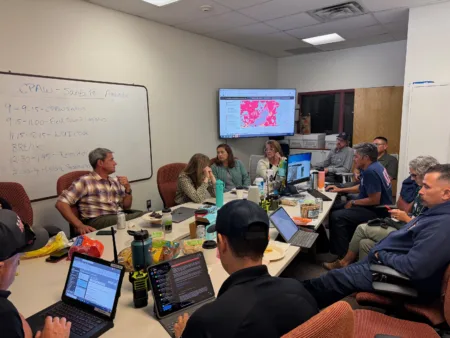
CPAW in Santa Fe
Ryan, Doug and Kimi are back from meeting with city planning and fire department officials in Santa Fe, NM to discuss how to best protect neighborhoods from wildfire threats. The city is the latest to join our CPAW program that is helping communities across the U.S. reduce wildfire risk and protect homes.
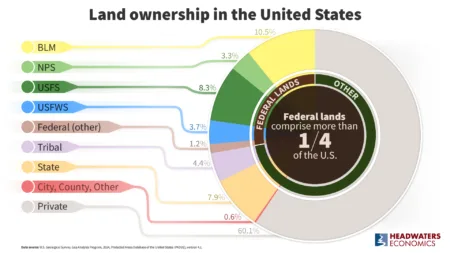
Data update: Public land ownership if the United States
We have updated our webpage that tracks public land ownership in the United States with the latest available federal data. View interactive maps and charts for all 828 million acres of federal, state, and municipal land in the U.S., including breakdowns by state and county.
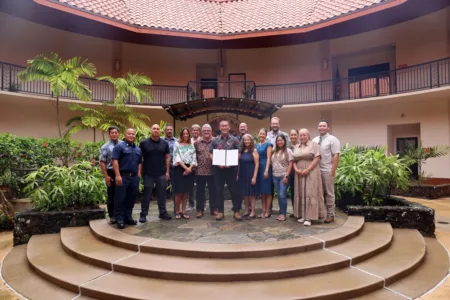
Kauaʻi sets new standard in protecting communities from wildfire
Kauaʻi county in Hawaiʻi is taking community wildfire risk reduction seriously, adopting one of the most forward-looking approaches that will embed home hardening and defensible-space standards into local codes. Headwaters Economics is honored to continue this partnership to reduce wildfire risks before a disaster happens.
Popular posts
The cost of retrofitting a home for wildfire resistance
Retrofitting a home for wildfire resistance can cost as little as $2,000, making this approach an effective risk reduction strategy for communities.
The Outdoor Recreation Economy by State
The outdoor recreation economy is large, growing faster than the overall economy, and consists of jobs in many industries. Explore data by state.
Economic Impact of National Parks
Millions of national park visitors generate economic opportunities for gateway communities, spending money that creates jobs and income. See the trends for every national park service unit.
Public land ownership in the United States
Public lands influence the economy, demographics, and fiscal policies of communities. Explore maps and county-level data for the 828 million acres of federal, state, and municipal land in the U.S.
Wildfires destroy thousands of structures each year
Explore the number of structures destroyed in each state by wildfire. Structures lost—rather than acres burned—provides a more complete measure of the broad impacts of wildfire.
115 million people are living with high wildfire risk
New climate data and methodology enhances Wildfire Risk to Communities, a free online tool for understanding wildfire risks across the United States.
A rural capacity map
A new map helps identify communities where investments in staffing and expertise are needed to support infrastructure and climate resilience projects.
Rising demand for FEMA’s BRIC program far exceeds available funding
An analysis of FEMA’s BRIC program for climate adaptation and disaster resilience funding shows rising demand, but unequal access.
The Amenity Trap: How high-amenity communities can avoid being loved to death
Amenity communities face unique challenges from waves of tourists and new residents. Proactive planning can help avoid being loved to death.
Congressional wildfire commission lays out a new approach for wildfire policy
A new report from the Wildland Fire Mitigation and Management Commission recommends transformative approaches needed to overcome the wildfire crisis.
Subscribe to our newsletter!
About Headwaters Economics
Headwaters Economics is an independent, nonprofit research group that works to improve community development and land management decisions.
Our Data Tools
Explore our free data tools
Headwaters Economics maintains free, easy-to-use tools to help you better understand socioeconomic data and trends. Find data from dozens of sources for thousands of places in the United States.
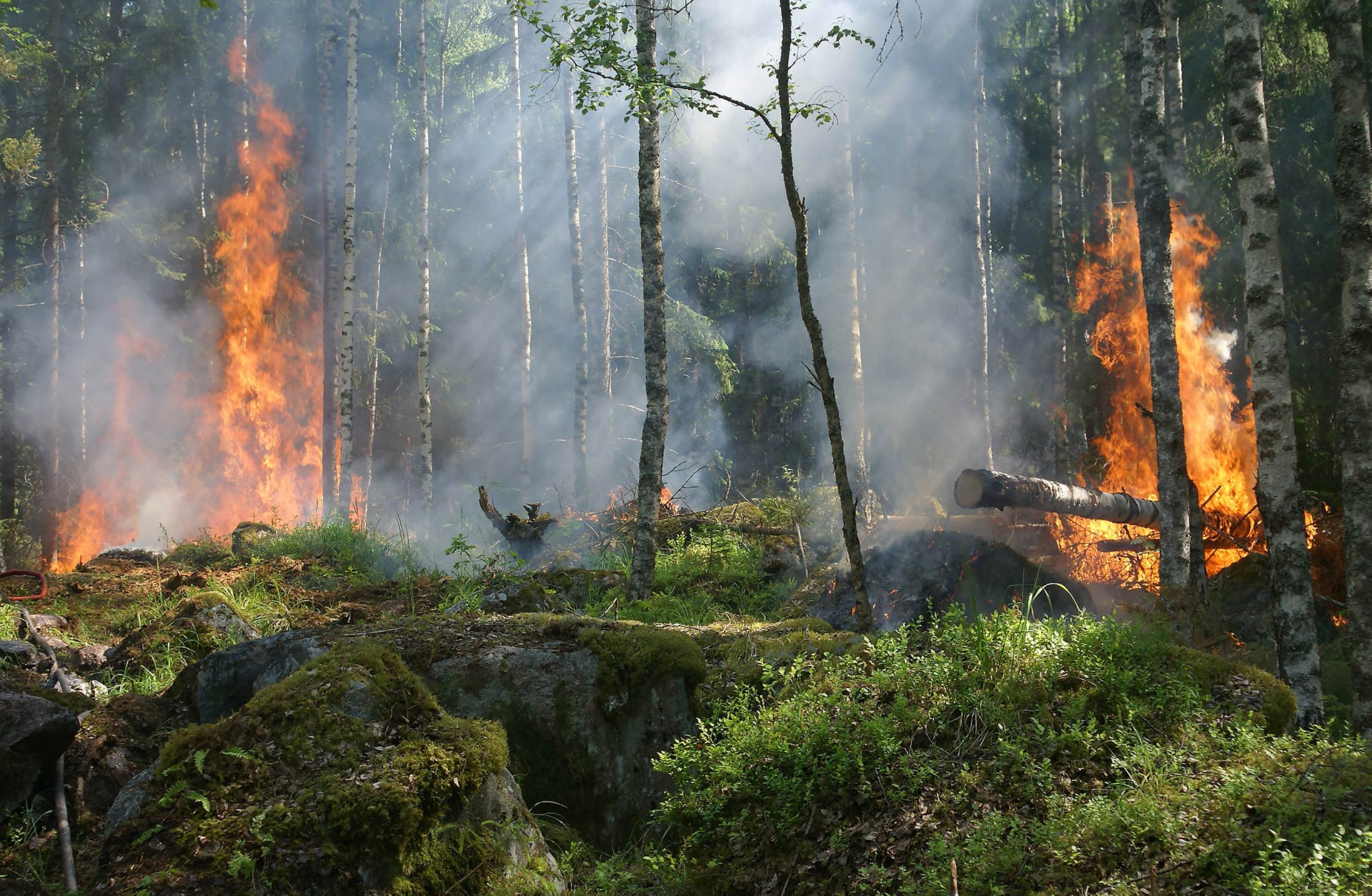
Community Planning Assistance for Wildfire
Community Planning Assistance for Wildfire (CPAW) works with communities to reduce wildfire risk through improved land use planning. The program is a program of Headwaters Economics, in partnership with the USDA Forest Service.






